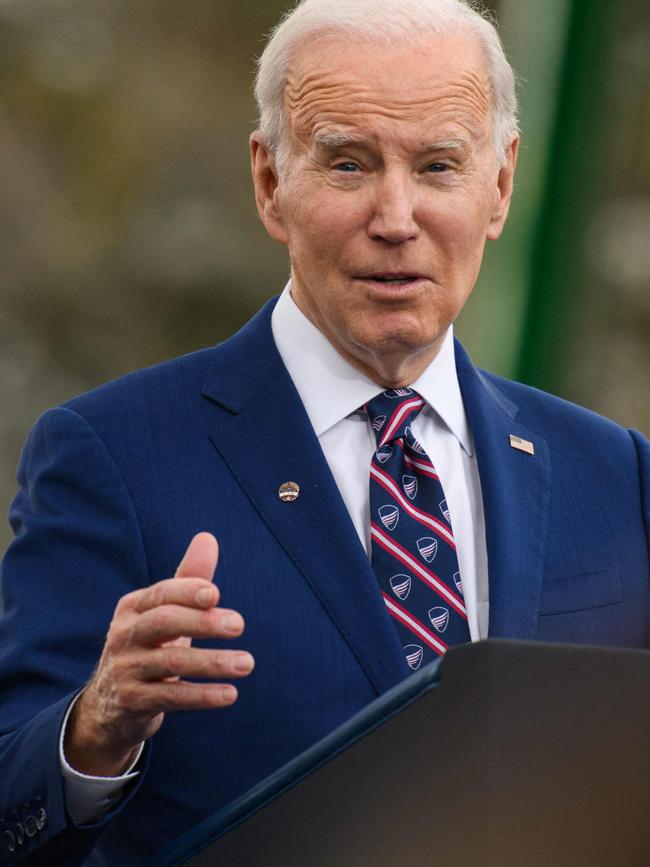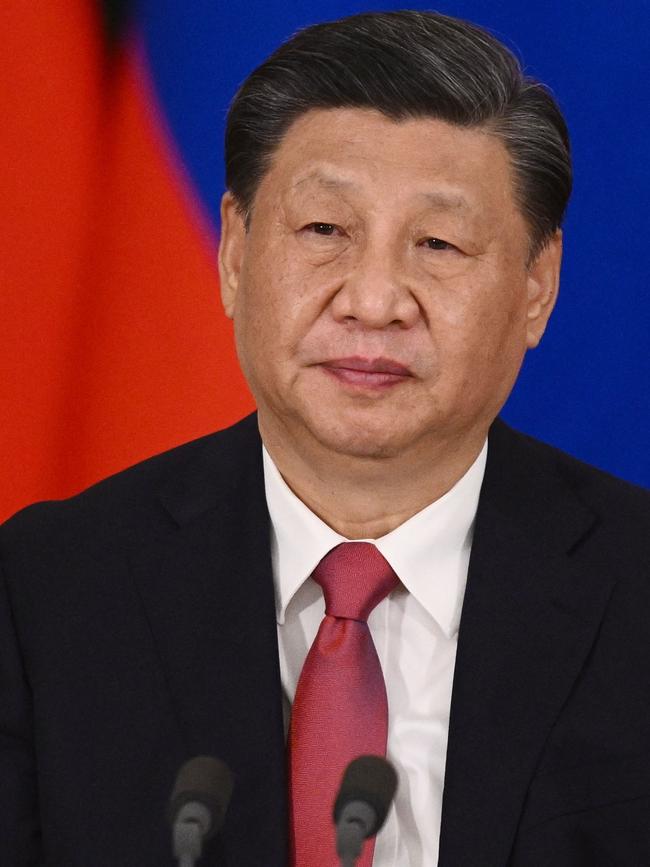China’s economic boycott of Australia led to AUKUS pact
A senior Biden Administration figure has revealed the exact actions China took that fuelled the AUKUS deal, and the ‘Cold War’ era move the US has attempted with Beijing.
World
Don't miss out on the headlines from World. Followed categories will be added to My News.
China’s “undeclared economic boycott” of Australia was one of several provocative actions that spurred new partnerships including AUKUS, according to Joe Biden’s Indo-Pacific tsar, who rubbished the Chinese government’s complaint that the US-led response was a threat.
Speaking on Friday, Kurt Campbell also revealed China had rebuffed American efforts to develop a Cold War-style crisis hotline, saying the coming months would be critical to determining whether constructive diplomacy could take place between the superpowers.
The comments of the President’s Indo-Pacific co-ordinator came as retired admiral Harry Harris, the former head of the US Pacific Command, said he believed Australia’s nuclear submarine deal would make military action in Taiwan “less appealing for China”.

But Mr Harris – who was tapped by Donald Trump to be the US ambassador in Australia before being diverted to South Korea – acknowledged AUKUS could be knocked off course by a change in leadership in the US.
“Is that subject to possibly being affected by changing political environments in all of those three countries? For sure,” he told a Center for Strategic and International Studies forum.
“But we have to commit to this deal … one administration at a time, whether that administration is in London, in Canberra or in Washington.”
“Every success will build on itself.”
Mr Campbell, appearing at the Center for a New American Security, shot down claims by the Chinese government that they were being surrounded and threatened by initiatives such as AUKUS and the Quad dialogue involving Australia, the US, Japan and India.


He said that while Indo-Pacific leaders avoided publicly discussing their concerns about China’s unprecedented military build-up, the measures they put in place were “largely responding to a security environment which is changing rapidly”.
Mr Campbell specifically pointed to China’s economic coercion of Australia – a trade freeze that has begun to thaw since the election of the Albanese government – as part of “a series of actions that have challenged the global order”.
“The idea here is not to in any way challenge China or surround China, but to protect our interests and to make sure that through common effort, we are able to stabilise and strengthen the elements of this system that we think have benefited all,” he said.
Mr Harris also dismissed suggestions AUKUS could be destabilising, arguing it would be a “deterrent in the mindset of the Chinese military”.
“It’s not destabilising to be strong – it’s destabilising when you’re weak,” he said.
Mr Campbell hailed the “unprecedented” pact he said was the result of “deeply sober” analysis and co-operation between the US, Australia and the UK.
He said it was part of the Biden administration’s effort to make it clear the US was “here to stay” in the Indo-Pacific after valid questions about “American staying power”.
While Mr Biden and Chinese President Xi Jinping discussed strengthening “guardrails” between the superpowers in a meeting last November, Mr Campbell said those US efforts were “yet to be successful”, especially since the Chinese spy balloon saga.
“I think the Chinese have been reluctant to engage in discussions around confidence-building or crisis communications or hotlines,” he said.
“We believe that given the fact that our forces operate in proximity, we’re going to have increasing challenges … We seek those kinds of communication mechanisms, I think that’s a responsible step.”
Originally published as China’s economic boycott of Australia led to AUKUS pact





